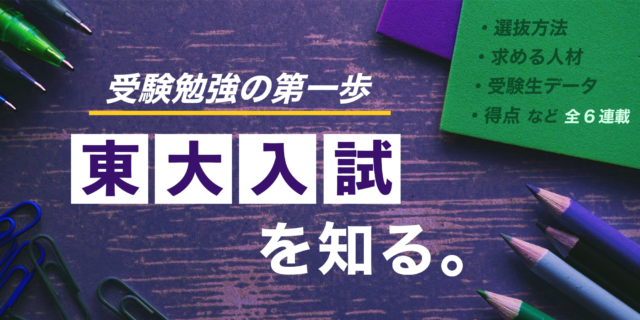#02【TEDリスニング】Keep your goals to yourself
2019.04.24
皆さん、こんにちは! 今回は数あるTEDのプレゼンの中でも有名なものの中の一つ、"How to start a movement"「社会運動はどうやって起こすか」の講演者である、デレク・シヴァーズのプレゼンを扱います。
"How to start a movement"は映像をふんだんに使ったプレゼンなので、音声のみの学習にはあまり適さないですが、内容的にはとても面白いので是非聞いてみてください!
※"How to start a movement"の動画に興味がある方はこちらのURLを参照してみて下さい。 ⇒ https://www.ted.com/talks/derek_sivers_how_to_start_a_movement
"goal"すなわち目標。皆さんには東大合格という大きな目標があると思いますが、その目標に対して人はどう行動すべきなのか、聞いてみましょう。
【問題】
※解答・解説はこのページ最下部にあります。
(A) 次の(1)〜(4)の問いに対してそれぞれ正しい答えを一つ選び、その記号を記せ。
(1) You should keep your target secret because…
a) you are likely to take the talking for the doing.
b) psychologists found that it is conventional wisdom.
c) telling someone about your goal makes you feel less motivated.
d) if you don’t, it will become part of your identity.
(2) According to the speaker, which of the followings describes the concept of the “social reality”?
a) It is the wisdom that people in a society needs.
b) It is the situation that is caused by human’s misunderstandings that satisfy your mind.
c) It is the social tests that Kurt Lewin carried out to examine human’s satisfaction.
d) It is the psychological idea about how a man should achieve his goal.
(3) Who found that people tend to think things real when they are acknowledged by someone?
a) Vera Mahler
b) Kurt Lewin
c) Peter Gollwitzer
d) Derek Sivers
(4) In the psychological tests mentioned in this paragraph, which is true?
a) Half of the people who took the test put their goal down.
b) people who kept their mouth shut accomplished their goal in 33minutes.
c) people who didn’t announce their goal tended to be displeased with what they had done.
d) It didn’t matter whether they made their goal known or not.
(B) 以下の文章が英文と一致するように空所 (1)~(4)を埋めよ。
It goes like this: 163 people across four separate tests -- everyone wrote down their personal goal. Then half of them ( 1 ) to the room, and half didn't. Then everyone was given 45 minutes of work that would directly lead them towards their goal, but they were told that ( 2 ). Now, those who kept their mouths shut worked the entire 45 minutes, on average, and when asked afterwards,said that ( 3 ) to achieve their goal. But those who had announced it quit after only 33 minutes, on average, and ( 4 ), said that they felt much closer to achieving their goal.
内容理解
今回のプレゼンでは科学的な実験データを用いて、目標を口外することによる目標の達成率の低下を示してくれている訳ですが、皆さんは東大合格という目標を周囲の方たちに伝えているでしょうか?
シヴァーズのプレゼンに則るのであれば他人に打ち明けず黙々と勉強すべきだと言えますが、友人や家族と目標を共有して共に努力するのも悪くないでしょう。事実筆者も受験生時代は友人と共に東大合格を目指して切磋琢磨したものです。
しかし他人に自分の目標を伝える場合、注意しなければいけないことがあります。しっかりとプレゼンを聞き取れた人なら分かりますよね?
そう、
But if you do need to talk about something, you can state it in a way that gives you no satisfaction.
とシヴァーズが言うように、その目標を打ち明けることで満足しないように他人に伝えなければいけません。
シヴァーズは以下のような具体例を挙げています。
"I really want to run this marathon, so I need to train five times a week and kick my ass if I don't, okay?"
ここでのkick my assとういう表現は文字通りに訳せば「お尻を蹴る」となりますが、今回は「喝を入れる」ぐらいに訳しておけばよいでしょう。つまり「今度のマラソンは是非走りたいから週5日練習しなきゃいけないんだ。もし練習をサボってたら喝をいれてくれないかい?」という訳になります。
皆さんが‘東大合格’という目標を打ち明ける場合、どのように伝えれば良いか考えてみてくださいね!
解答・解説
解答
(A)
(1) a) (2) b) (3) a) (4) c)
(B)
(1)announced their commitment to this goal
(2)they could stop at any time
(3)they had a long way to go
(4)when asked afterwards
みなさん正解できたでしょうか?「他人に自分の目標を打ち明けるべきでない」という大きなテーマを理解するだけでかなりの選択肢を外せるはずです。
(A)の(1)では選択肢の中にtake talking for doingという表現が出てきました。take A for BでAをBだと(誤って)思う、間違えるという意味になります。
(2)では"social reality"というフレーズが出てきました。社会的現実とは、例えばオイルショック時に「トイレットペーパーが無くなる」という噂が流れ、人々が買い占めに走り、結果としてその噂が現実になってしまったように、社会によって形成された現実のことを指します。今回の英文の中では、目標を口にすることによって形成された、「既に目標は達成された」という思い込みのことを指しています。
Peter Gollwitzerなる人物が行った実験の概要とその結果に関する(A)の(4)は正しい根拠を持って答えられているでしょうか? こういった実験の手順等のややこしい事柄は問題でも問われやすいので、よく分からなかった人はもう一度聞いてみましょう。
(B)ではディクテーションを出題しました。最近は東大リスニングではディクテーションは出題されていませんが、以前は出題されていました。今後ディクテーションが復活する可能性もありますし、なんといっても正確なリスニング力を付ける上でディクテーションは非常に効果的です。
東大入試ドットコム編集部 荒 諒理
































